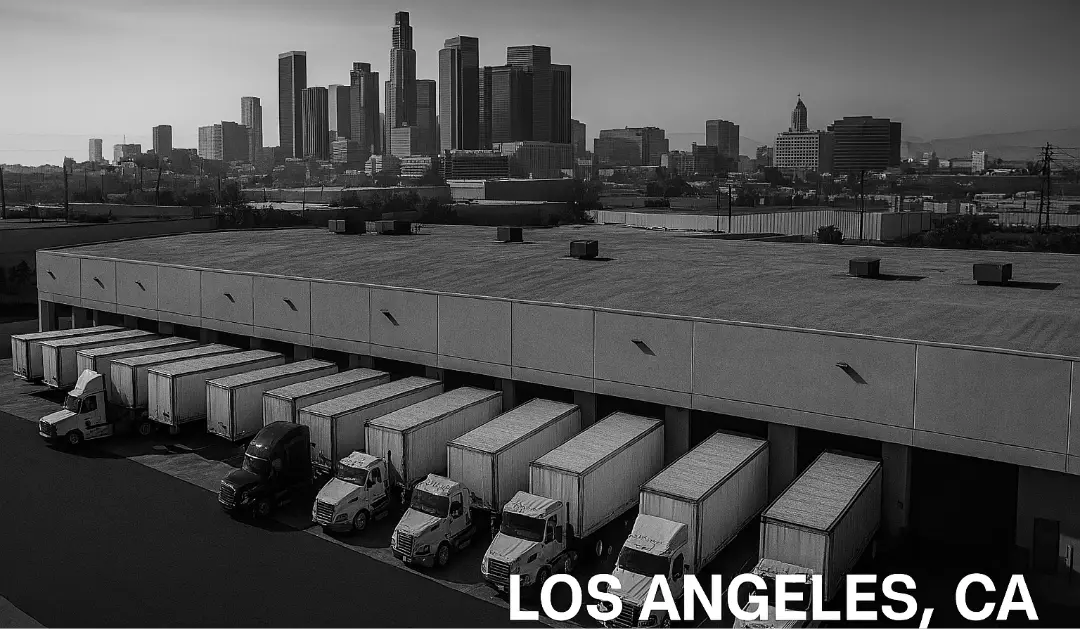I. Introduction
In today’s global economy, supply chain management is a critical factor for the success of any business. A well-managed supply chain can help businesses to reduce costs, increase efficiency, and improve customer satisfaction. To achieve these goals, many businesses are turning to third-party logistics providers (3PLs). In this section, we will provide an overview of 3PLs, their importance in supply chain management, and finally, what to look for in a 3PL.
We recognize that searching for the appropriate 3PL can be an intimidating and time-intensive process. With a variety of choices, each with its own unique expertise and focus, it’s critical to select the appropriate provider as it significantly influences the future success of your business.
An ideal 3PL partner should alleviate the burden of logistics operations and allow you to focus on enhancing your products and brand.
II. What is a 3PL?
A third-party logistics provider, or 3PL, is a company that provides logistics services to businesses. These services include transportation, warehousing, inventory management, and other supply chain activities. 3PLs typically operate as intermediaries between businesses and transportation companies, helping to coordinate the movement of goods from one place to another. There’s no shame in brushing up on 3PLs before making a decision.
III. What to Look For in a 3PL: Supply Chain Management
When determining what to look for in a 3PL that will best suit your operations, there are several important factors to consider, including:
Expertise and Industry Knowledge: 3PLs have extensive knowledge and experience in the logistics industry, including regulatory compliance, transportation management, and supply chain optimization. This expertise can help businesses to streamline their operations and reduce costs.
Scalability: 3PLs can help businesses to scale their operations quickly and efficiently by providing additional capacity and resources as needed.
Access to Technology: 3PLs invest heavily in technology, including transportation management systems, warehouse management systems, and other software tools to help businesses improve their supply chain operations.
Cost Savings: By outsourcing logistics activities to a 3PL, businesses can reduce overhead costs, such as labor, equipment, and facilities. 3PLs can also help businesses negotiate better rates with transportation providers, reducing costs.
IV. Technology
Technology has become a vital component of modern logistics and supply chain management. With the ever-growing complexity of supply chains, it is imperative that businesses work with 3PLs that are equipped with the latest technology. In this section, we will discuss the role of technology in logistics and supply chain management and how to evaluate a 3PL’s technology capabilities.
The Role of Technology in Logistics and Supply Chain Management
Technology has transformed the logistics and supply chain industry in recent years, allowing for greater efficiency, accuracy, and visibility. Some of the essential technology tools used in logistics and supply chain management include transportation management systems, warehouse management systems, and inventory management systems. These tools can help businesses optimize their supply chain operations, reduce costs, and improve customer service.
Assessing the 3PL’s Technology Capabilities
When evaluating a 3PL’s technology capabilities, consider the following:
- What technology tools does the 3PL use? Are they up-to-date and effective?
- Does the 3PL have experience working with businesses similar to yours?
- Does the 3PL have a dedicated IT team to manage and maintain its technology tools?
- Can the 3PL provide real-time visibility into your supply chain operations?
- Evaluating the Compatibility of the 3PL’s Technology with Your Existing Systems
It’s crucial to ensure that the 3PL’s technology is compatible with your existing systems to avoid integration issues. When evaluating compatibility, consider the following:
- Does the 3PL’s technology integrate seamlessly with your existing systems?
- What are the costs and timelines associated with integrating the 3PL’s technology with your existing systems?
- Will there be any disruptions to your operations during the integration process?
It is no surprise that in today’s world, technology plays a critical role in modern logistics and supply chain management. When selecting a 3PL partner, it’s essential to assess their technology capabilities, ensuring they use the latest technology and tools and are experienced in working with businesses like yours.
Furthermore, evaluating the compatibility of the 3PL’s technology with your existing systems is critical to avoid any integration issues. Ultimately, partnering with a 3PL that has advanced technology capabilities can help businesses improve their supply chain operations, reduce costs, and enhance customer service.
V. Cost
When pondering what to look for in a 3PL, it’s important to remember that the lowest price is not always the best option. While it may be tempting to opt for the lowest price, it’s crucial to consider the long-term impact on your business. In this section, we’ll discuss why the cheapest option may cost you more in the long run and how to navigate 3PL pricing.
You Get What You Pay For
Regarding 3PLs, it’s essential to remember the old adage, “You get what you pay for.” The cheapest provider may not have the experience, technology, or resources to meet your needs effectively. Sometimes, they may even cut corners, resulting in issues like late deliveries or damaged goods. Ultimately, these issues can harm your business’s reputation and customer satisfaction. This is a crucial aspect in the journey of what to look for in a 3PL.
Understanding 3PL Pricing
3PL pricing can be complicated, with various factors influencing the final cost. When evaluating pricing, ask your potential 3PL partner to walk you through the costs and how they will make sense for your business. Some factors that may influence pricing include:
- Volume and frequency of shipments
- Transportation mode (e.g., ground, air, ocean)
- Warehousing and storage fees
- Value-added services (e.g., kitting, labeling, assembly)
- Technology and software fees
While cost is undoubtedly an essential factor when selecting a 3PL, it’s crucial to find the right balance between cost and quality. Consider the 3PL’s experience, technology capabilities, and reputation when evaluating pricing. A slightly higher cost may be worth it if it means better service, increased efficiency, and, ultimately, a better customer experience.
In conclusion, while determining what to look for in a 3PL for your business, it can be tempting to opt for the cheapest 3PL option; it’s essential to consider long-term impacts. A low price may result in lower quality service, which can ultimately harm your business’s reputation and bottom line. When evaluating pricing, consider the 3PL’s experience, technology capabilities, and reputation, and remember to find the right balance between cost and quality.
VI. Credibility
When selecting a 3PL, evaluating its reputation and credibility in the industry is critical. In this section, we’ll discuss the importance of assessing a 3PL’s reputation, how to check for customer references and reviews, and how to evaluate their responsiveness and communication skills.
Reputation and Credibility
While determining what to look for in a 3PL for your business, it’s essential to evaluate its reputation and credibility in the industry. Consider factors such as:
- How long have they been in business?
- Do they have experience working with companies similar to yours?
- What do industry peers say about them?
- Customer References and Reviews
Checking for customer references and reviews can provide valuable insight into a 3PL’s strengths and weaknesses. Ask potential providers for references from companies similar to yours and take the time to reach out and ask about their experience. Additionally, search for online reviews and ratings to get a broader understanding of the provider’s reputation.
Responsiveness and Communication
Effective communication is crucial when partnering with a 3PL. Evaluate their responsiveness and communication skills during the selection process to ensure they’re a good fit. Consider factors such as:
• How quickly do they respond to inquiries?
• Do they provide clear and concise answers to your questions?
• Are they willing to work with you to solve potential issues?
When evaluating a 3PL, take the time to assess their reputation, customer references and reviews, and responsiveness and communication skills. A strong reputation and a proven track record of success can provide peace of mind and increase the likelihood of a successful partnership. Effective communication and responsiveness are critical to ensuring a smooth and efficient supply chain.
You’re passionate and knowledgeable about your product and market, and no one expects you to be an expert in shipping and logistics. Make sure that the 3PL you choose is professional and experienced and will value your customers in the same way that you do when it comes to responsive communication.
VII. What to Look For in a 3PL: Conclusion
Selecting the right 3PL is crucial to the success of your business. A strong partnership with a reliable provider can improve your supply chain efficiency, reduce costs, and ultimately enhance your customer experience. On the other hand, a poor partnership can result in delays, errors, and damaged goods, ultimately harming your business’s reputation and bottom line.
In conclusion, selecting the right 3PL is a critical decision that should not be taken lightly. Consider the key factors outlined in this article and take the time to evaluate potential partners thoroughly. With the right 3PL, you can streamline your supply chain, increase efficiency, and ultimately set your business up for success.





